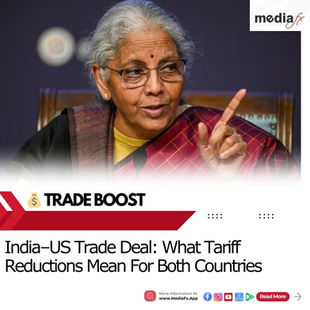🧨 "SC Makes Surprise Move on Waqf Act — But Doesn’t Scrap It!"
- MediaFx

- Sep 15, 2025
- 3 min read
TL;DR
The Supreme Court has refused to stop the entire Waqf Amendment Act 2025, meaning the law will continue for now. However, it has paused a few controversial parts — like the rule that says a person must be practising Islam for 5 years to create a waqf. The court says it will wait for the government to make rules and then examine further. So it’s a partial stay — not a full victory for petitioners, but not a loss either.

What’s the full story?
The Waqf Amendment Act 2025 came under fire for bringing in new rules that some felt were unfair and discriminatory. A bunch of people challenged the law in the Supreme Court, saying it violates constitutional rights.
But the court said laws made by Parliament are assumed to be valid unless there is solid proof they’re unconstitutional. So, it refused to stay the entire law.
However, it agreed to pause some specific rules for now. For example:
The rule that says a person must have been practising Islam for 5 years before donating property as waqf.
Some clauses related to the powers of District Collectors.
Certain rules about how waqf properties are identified or recorded.
The court said these parts will be on hold till the government finishes making detailed rules, or until the court looks deeper into the issues.
Why does this matter?
Waqf properties are lands or buildings given for religious or charitable use by Muslims — often used for schools, hospitals, dargahs or orphanages.
The new law demanded stricter conditions — like religious proof, documentation, and more government control. But critics say that:
Many poor people or new converts don’t have all the documents.
Land donated long ago might not meet the new technical rules.
The law gives too much power to the government to decide what is or isn’t waqf.
This raised fears that the law could be used to snatch lands from poor people or small religious trusts, while protecting the interests of powerful players.
What did the court actually say?
The Supreme Court basically said — "We're not stopping the whole thing, but yes, some parts are problematic and will be paused for now."
The court reminded that Parliament laws carry weight, but also agreed that certain clauses could be challenged. It asked the Centre to file replies and clarify rules.
People’s perspective 👥
From a working-class and marginalised point of view, this law brings in too much red tape and can be used against the poor.
In rural areas and small towns, many waqf properties were given without big legal papers — just based on trust or verbal agreements. Now suddenly demanding proof of 5 years of religious practice or legal registration is unfair.
Instead of protecting these lands for public good, this law seems more focused on control, paperwork and surveillance.
MediaFx Opinion 🧠
From the people's angle — this is a classic case of how laws that sound clean on paper can become dangerous tools when applied to the ground reality.
While corruption in waqf boards is real and reform is needed, reform must protect the poor, not punish them.
The Supreme Court did the right thing by halting the most problematic clauses for now. But the real fight is still ahead — and it’s one about land, power, and justice.
What do you think?
Is this law a step towards better governance? Or is it another way to control land and restrict rights? Drop your comments and let's talk!













































